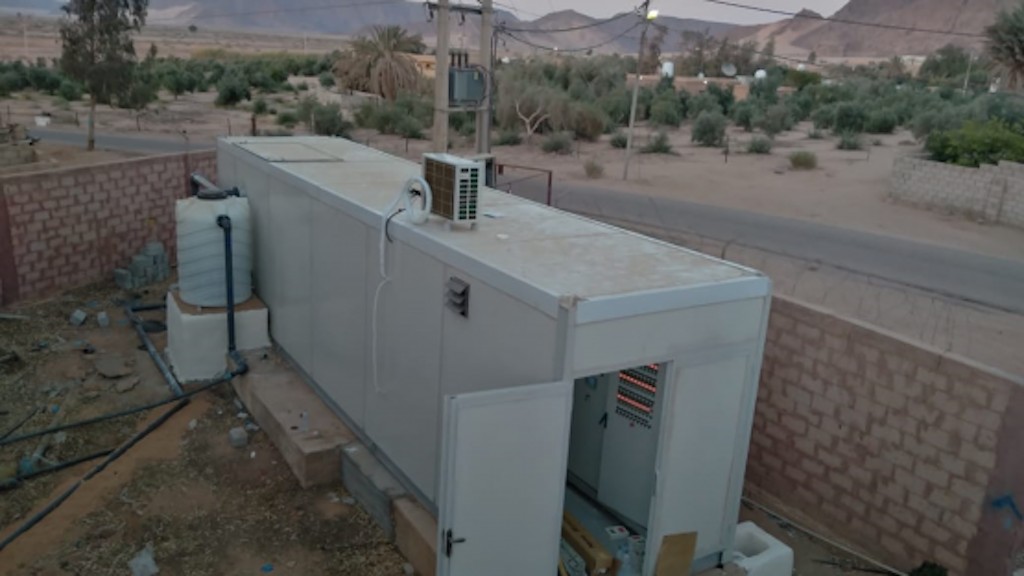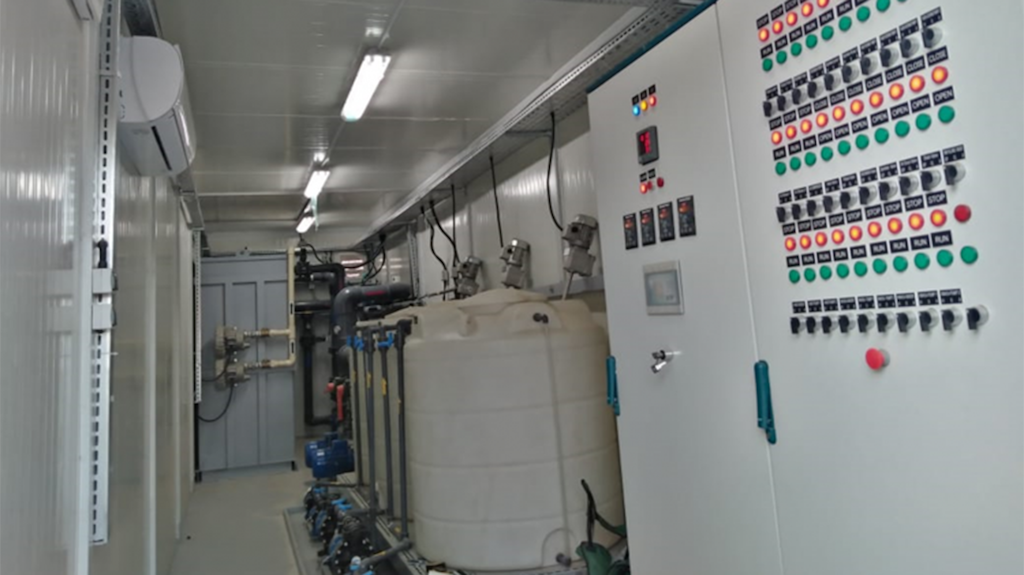The first of its kind in Jordan, the pilot treatment system works by removing naturally occurring radionuclides from groundwater, allowing the Water Authority of Jordan (WAJ) to leverage previously unused aquifers and reduce stress on existing sources of water.
Jordan is among the ten countries with lowest availability of freshwater per-capita in the world – due to its semi-arid climate, characterized by low precipitation rates and the result of its growing population. This situation is expected to worsen and, according to the World Health Organization’s Regional Office for the Eastern Mediterranean (WHO-EMRO), Jordan will enter a state of “extreme water poverty” by 2025 unless effective measures are taken.
One such measure is the exploitation of deeper, older groundwater resources, such as the Ram aquifer, which – surrounded by sandstone – holds vast amounts of high-quality fresh water, unlikely to show any anthropogenic contamination. However, sandstone tends to contain elevated concentrations of naturally occurring radionuclides, mainly radium, which can be dangerous to consumers.
Supported by the IAEA’s technical cooperation programme, isotope analysis specialists and waste technology specialists helped experts in Jordan to measure and monitor the concentration of radium in groundwater sampled from the Ram aquifer and to explore a number of options for the water’s treatment.
Following the analysis of the water content, the project supported the construction and installation of a water treatment unit, located near a water well. The treatment unit filters the water by adding hydrous manganese oxide (HMO) and subsequently channelling the water through a series of ceramic filters, reducing the nuclide concentrations to a level conforming with Jordanian standards (see The Science).
Following the arrival of the first basic components, such as pumps and gauging devices, the assembly of the water treatment equipment was launched in February 2020, with civil works and construction beginning the following month. By December 2020, the treatment unit was complete and ready to be used by Aqaba Water, the local water distribution authority. The new unit can treat 40 cubic metres of water per hour — or 12.5 litres per second — providing enough water for approximately 2000 people.
“We are planning to establish more units to treat water resources in the city of Aqaba, as well as in new groundwater wells in the southern region of Amman governorate, in an area called Khan Alzabib,” said Amal Al-Sayaheen, Director of Research and Technical Services at the Water Authority of Jordan.

Completed in December 2020, the water treatment unit facilitates the use of older, sandstone groundwater aquifers. Photo: A. Alsayahien/WAJ
All materials in the Earth’s crust contain naturally occurring radionuclides. They are dispersed throughout rocks and soils, normally in low activity concentrations. However, they can leach into groundwater and, as a result, into drinking water derived from groundwater sources and springs. “The presence of radionuclides may warrant careful analysis to understand the radiological risks associated with the consumption of these waters,” said Horst Monken-Fernandes, an IAEA Environmental Remediation Specialist assisting Jordan in this project.
Radioactivity in drinking water is an issue in many countries in the world. Recently, the IAEA organized a workshop in the scope of the NORM 2020 Conference, entitled Groundwater 360o, which explored various aspects related to the presence of natural radionuclides in groundwater.

The treatment unit takes advantage of mature isotopic technologies to ensure the water is safe to drink. Photo: A. Alsayahien/WAJ
The quality of groundwater from the sandstone basins in the Middle East is mostly high. However, due to its composition, sandstone tends to contain elevated activity concentrations of naturally occurring radionuclides. In the case of Jordan, the levels of naturally occurring radium may impair groundwater quality due to the carcinogenic properties of radionuclides.
The process for removing radium from water using HMO relies upon a silicon carbide membrane, which in turn supports a layer of hydrous manganese oxide.
As water passes through the filter, the HMO absorbs the radium. After a designated length of time, the ceramic filter is "backwashed," and the HMO containing the absorbed radium is disposed of as waste.


